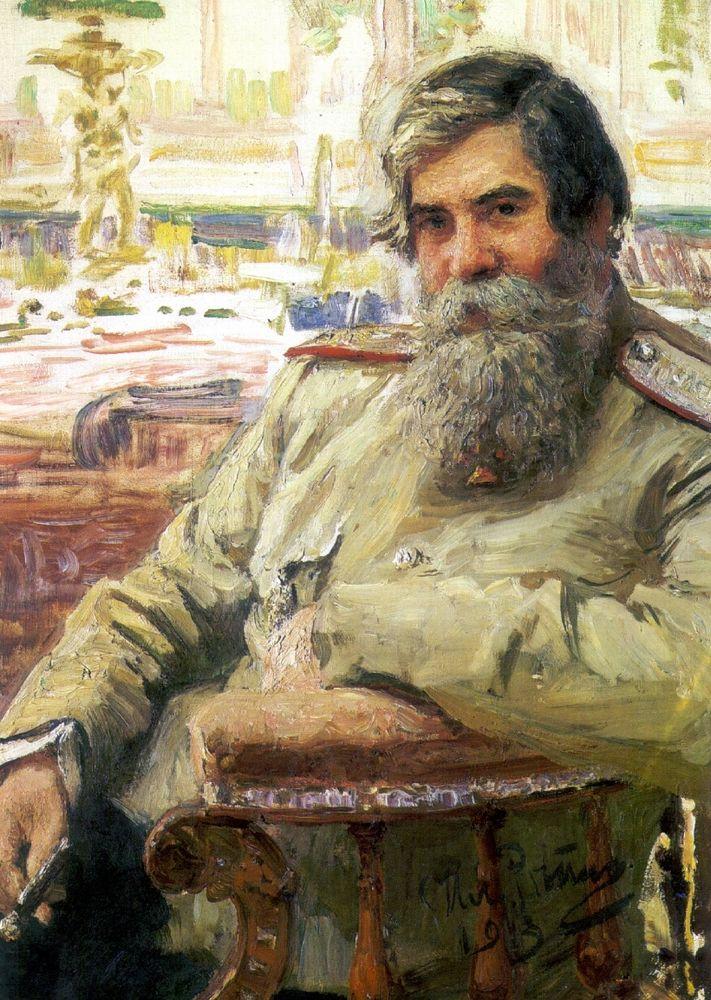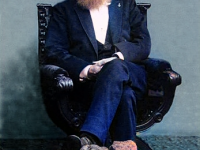On January 20, 1857, Russian neurologist Vladimir Mikhailovich Bekhterev was born. He is often referred to as father of objective psychology, but is best known for noting the role of the hippocampus in memory, his study of reflexes, and Bekhterev’s disease. Moreover, he is known for his competition with Ivan Pavlov regarding the study of conditioned reflexes.[1]
“Only two know the mystery of brain: God and Bekhterev.”
— Friedrich Wilhelm Theodor Kopsch, as quoted in [10]
Vladimir Bekhterev’s Early Years
Vladimir Bekhterev was born in Sorali, a village in the Vyatka Governorate of the Russian Empire between the Volga River and the Ural Mountains, and attended Vyataka gymnasium in 1867 followed by the Military Medical Academy in St. Petersburg in 1873. Later Bekhterev worked as a junior doctor in the clinic of mental and nervous diseases at the Institutes of Medic’s Improvement. There, he probably started his experimental work. Bekhterev graduated from the Medical and Surgery Academy of St. Petersburg in 1878 and worked at the Psychiatric Clinic in St. Petersburg. There, it is believed that he was mostly inspired to study the anatomy and physiology of the brain. On April 4, 1881, Bekhterev successfully defended his doctoral thesis, “Clinical studies of temperature in some forms of mental disorders,” and received his doctorate from the Medicosurgical Academy of St. Petersburg.
The Understanding of the Brain
Bekhterev’s works significantly contributed to the current understanding of the brain. He was able to receive a travel scholarship awarded to study and conduct research in both Germany and Paris, where he worked with many contributors to the field of science including Wilhelm Wundt, Paul Emil Flechsig, and Theodor Meynert.[2] After his return, Bekhterev worked as the head of the Psychiatry Department at the University of Kazan until 1893. Already in the mid 1880s, Bekhterev established the first laboratory of experimental psychology in Russia in order to study the nervous system as well as the brain’s structures. He came to the conclusion that the brain consists of several zones with specific functions. Also because nervous disorders and mental disorders usually occur in conjunction with each other, he believed that there was no definite distinction between these disorders.
Bekhterev’s Disease
Bekhterev identified Ankylosing Spondylitis or ‘Bekhterev’s disease‘, a degenerative arthritis of the spine. Ankylosing Spondylitis, also known as AS was probably distinguished from rheumatoid arthritis by Galenus of Pergammon [6] as early as the second century AD. Skeletal evidence of the disease was found in an archaeological dig that unearthed the skeletal remains of a 5000-year-old Egyptian mummy. It is assumed that the anatomist and surgeon Realdo Colombo already described AS in 1559. In 1818, Benjamin Brodie became the first physician to document a person believed to have active AS who also had accompanying iritis.
The first case of AS that was documented was published in 1858 by David Tucker. In his small booklet, Tucker explained the case of Leonard Trask, who suffered from severe spinal deformity subsequent to AS. The latter fell from a horse and Tucker reported that “It was not until he [Trask] had exercised for some time that he could perform any labor … [H]is neck and back have continued to curve drawing his head downward on his breast“. In the 19th century, Vladimir Bekhterev in 1893, Adolph Strümpell of Germany in 1897, and Pierre Marie of France in 1898 were the first to give adequate descriptions which permitted an accurate diagnosis of AS prior to severe spinal deformity. For this reason, AS is also known as Bekhterev Disease, Bechterew’s Disease or Marie–Strümpell Disease.
The Spread of Suicide
In 1911, Bekhterev spoke at the First Congress of the “Association of Patriotic Psychiatrists” in Russia about the spread of suicide in his home country. He saw the war as a major cause of suicide for many people, as the war deeply shook their mental balance. His ideal was the increase of “positive knowledge” and “positive knowledge”, which would make all people smarter and more humane. The knowledge would help people to recognize themselves more deeply and to perfect the social conditions. On this basis, wars would also be avoidable
Later Years and Death
After the October Revolution, the Institute for Brain Research was founded in Petrograd in May 1918 on Bechterev’s initiative, which he headed until his death. Vladimir Bekhterev died of poisoning in 1927 at the age of 70. Allegedly he was murdered at the behest of Stalin, after Bechterev had diagnosed the General Secretary with severe paranoia two days earlier. A few years later Andrei Wyschinski, as Stalin’s chief prosecutor, ordered a court to sentence Bechterev’s son Pyotr to death and to send his family to a camp.
Charles Moore, Spondyloarthoathies (Part 1), [9]
References and Further Reading:
- [1] Pavlov and the Conditional Reflex, SciHi Blog, September 27, 2014.
- [2] Wilhelm Wundt – Father of Experimental Psychology, SciHi Blog, August 16, 2016.
- [3] Vladimir Bekhterev at Britannica
- [4] Ankylosing spondylitis at the University of Washington
- [5] Picture, biography, and bibliography in the Virtual Laboratory of the Max Planck Institute for the History of Science
- [6] Galenus of Pergamon – The most Accomplished Physician of Antiquity, SciHi Blog
- [7] Kizilova, Anna. “Vladimir Bekhterev, the World-Famous Russian Neurologist”. Russia-InfoCentre.
- [8] Vladimir Bekhterev at Wikidata
- [9] Charles Moore, Spondyloarthoathies (Part 1), 2015, UofL Internal Medicine Lecture Series @ youtube
- [10] PsychiatryOnline | American Journal of Psychiatry | Vladimir Bekhterev, 1857–1927
- [11] Timeline of Behavioural Psychologists, via DBpedia and Wikidata






Pingback: Whewell’s Gazette: Year 2, Vol. #28 | Whewell's Ghost